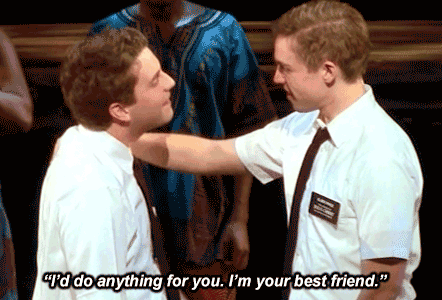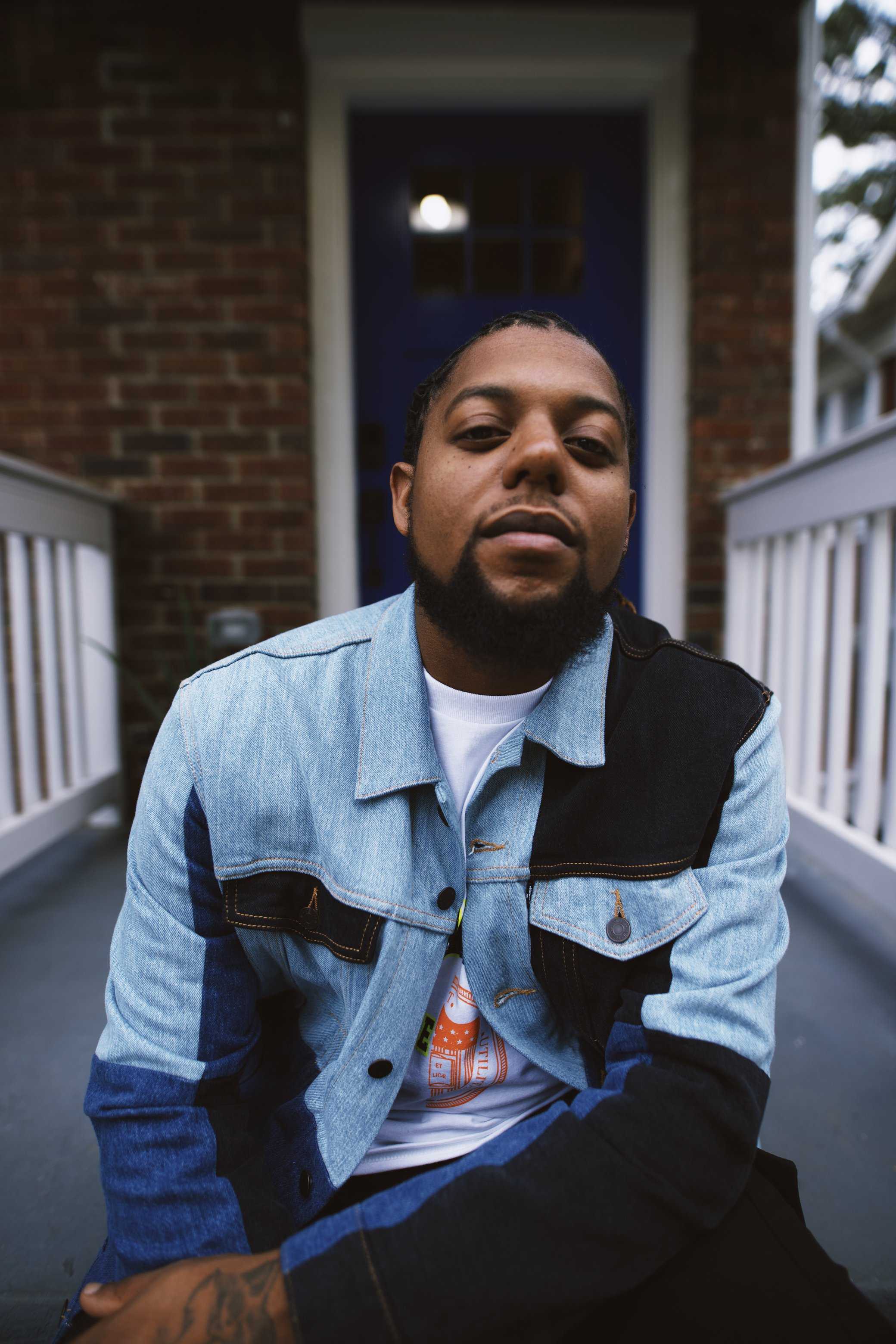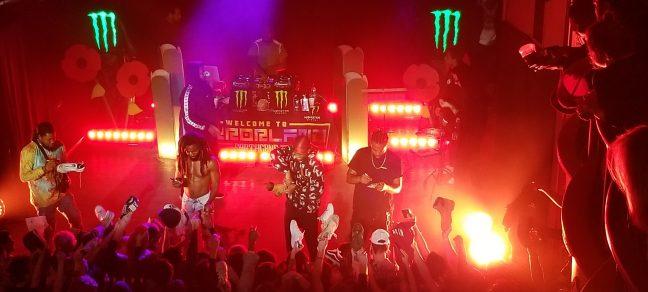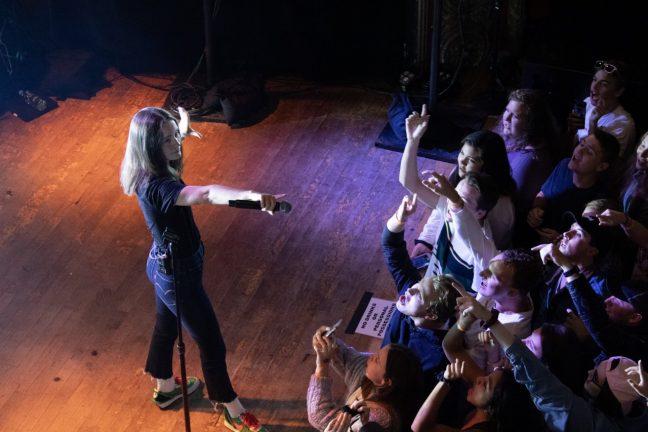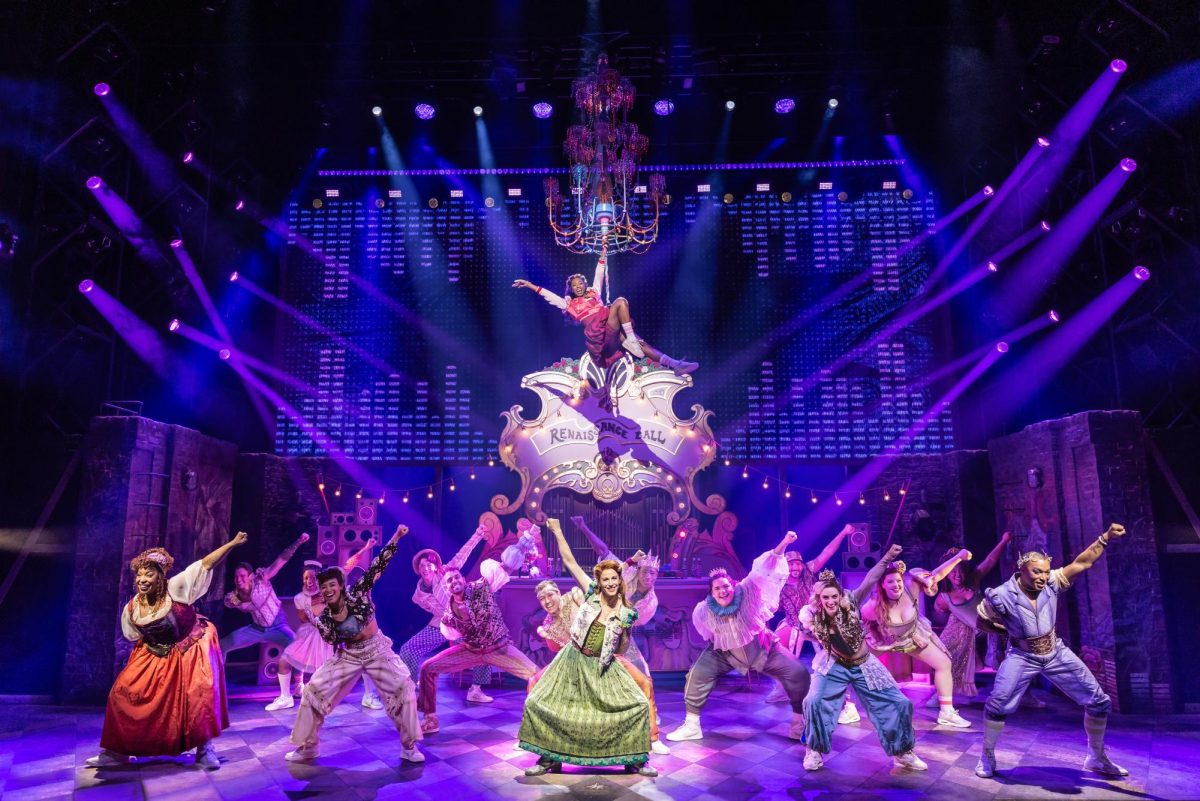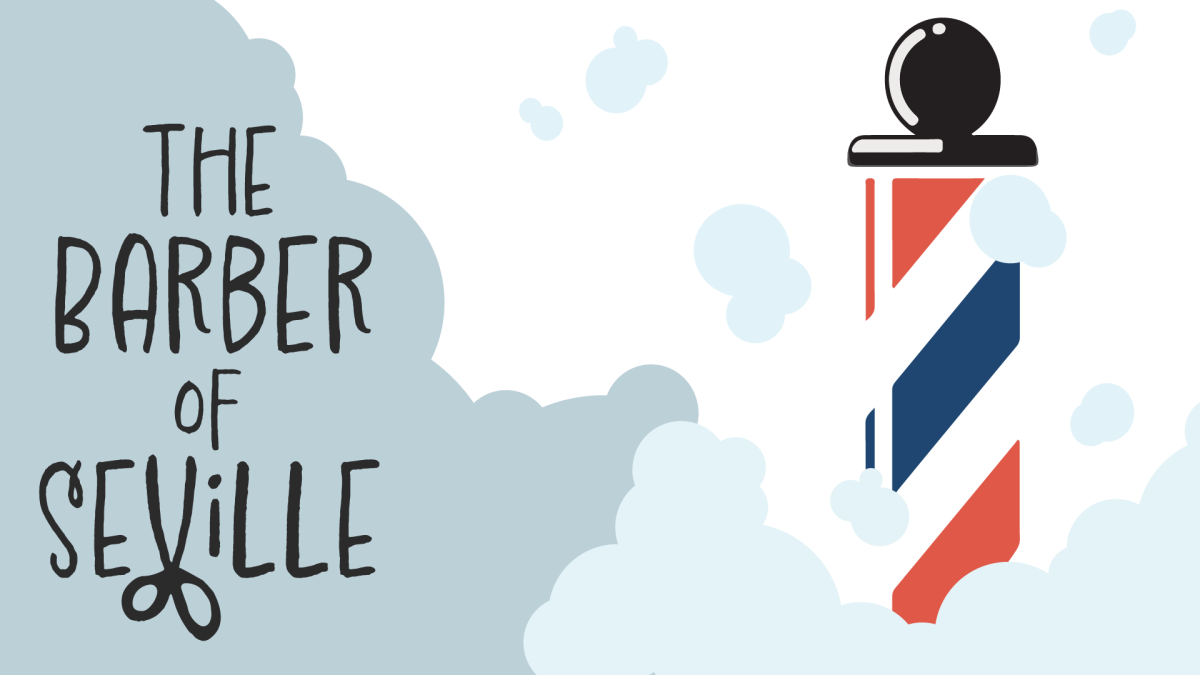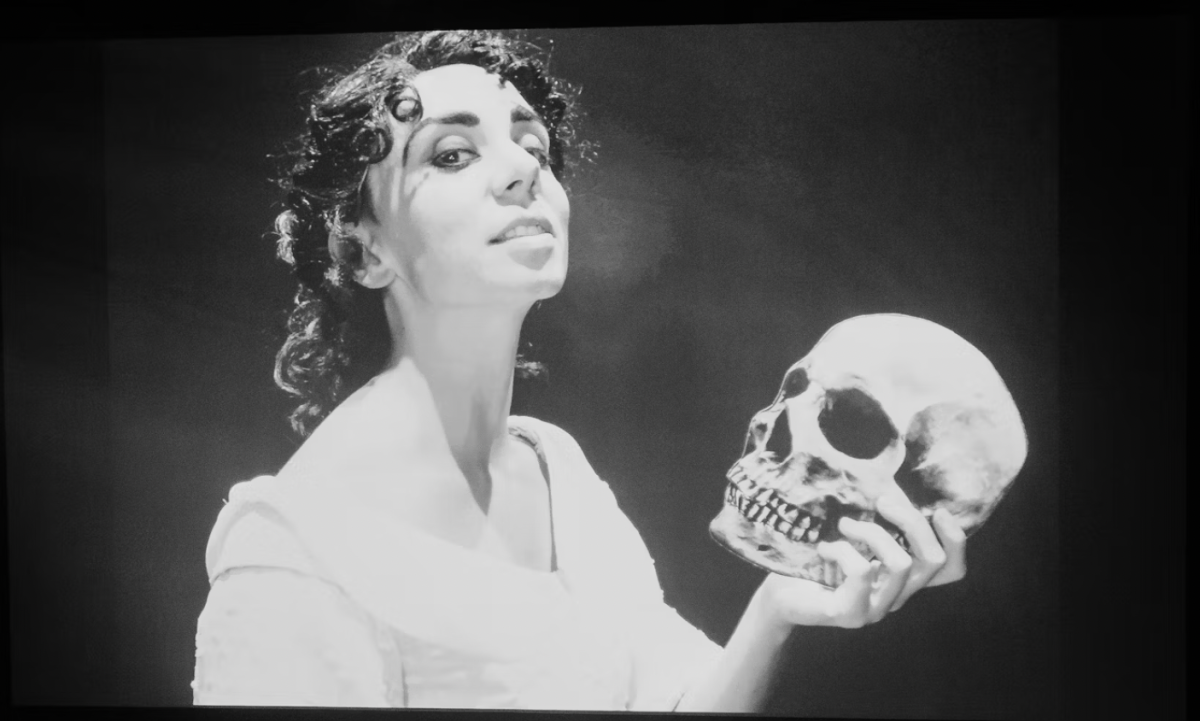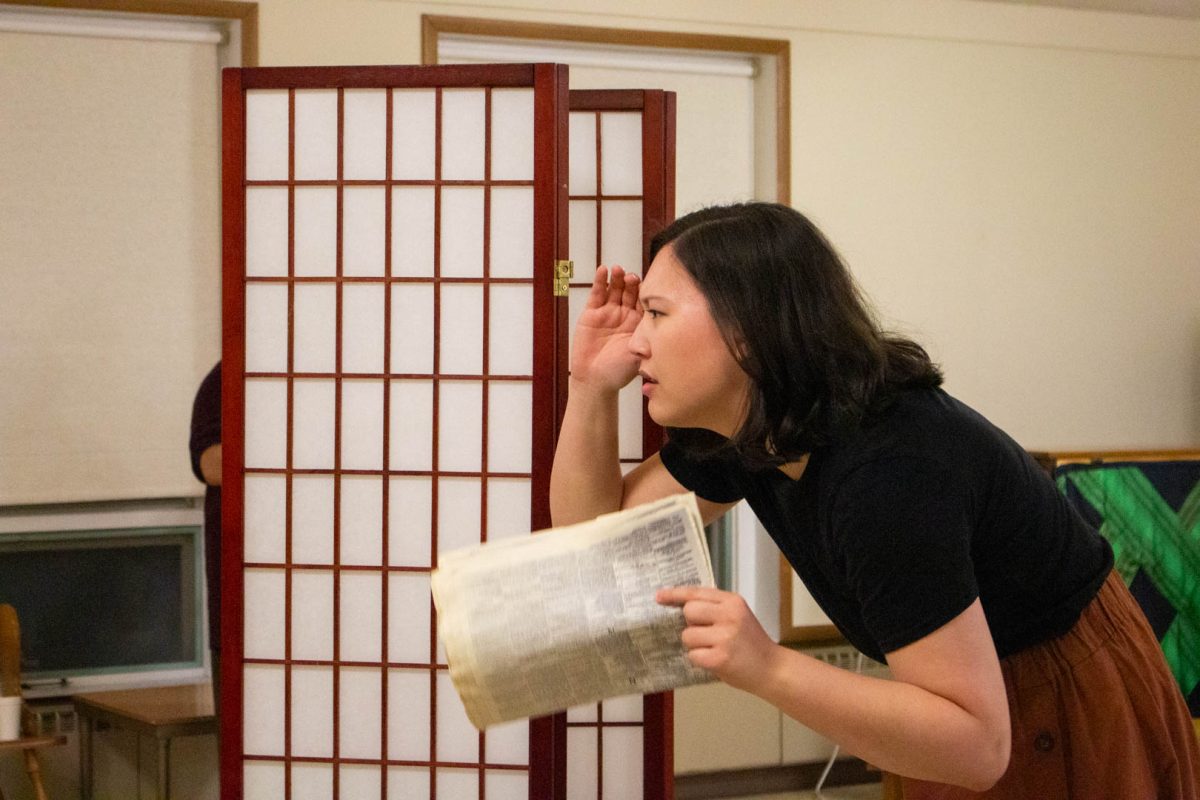“The Book of Mormon” is sure to offend. Co-produced by the individuals famous for brash humor in the animated comedy “South Park,” “The Book of Mormon” leaves no stone unturned in the search for off-color comedy.
The Overture audience’s eardrums were assaulted by whimsical hymns and musical numbers depicting maggot-infested scrotums, the dangers of the clitoris, poop, pee and frog fucking. Despite copious use of “fuck” and altogether sophomoric humor, the true genius of the Broadway show lies in its exposure and satirization of deep social and religious themes. While it is wholeheartedly balls-out, the attacking humor of the show transmits a profound and relevant message, personalized for each audience member.
Back in March 2014, Comedy Central masterminds Keegan-Michael Key and Jordan Peele wrote an article titled “Make Fun Of Everything.” The piece argued that in our world of overly-political correctness, we’ve learned to fear laughing at the brash, raw and unfiltered. In essence, we’ve morphed into a culture that protects specific content, fearing that it’ll be too weak to be exposed and chortled at. Incongruently, the heart of comedy lies is our ability to acknowledge the shortcomings and woes of the world — and unmask them through laughter — exposing them and making them a little less terrifying.
“The Book of Mormon” relentlessly injects a fresh and fun flavor into the world of musical theatre, laughing at the un-laughable, and finding humor in sometimes untouchable subjects.
In the works since 2003, the musical masterpiece follows a duo of young Mormon missionaries, Elder Price (Billy Harrigan Tighe) and Elder Cunningham (A.J. Holmes) as they audaciously charge into the lawlessness of rural Uganda. Faced by a hopelessly inconvertible Ugandan village, the musical details the progression of their impossible friendship as they face warlords, find love, break the rules and find a deeper meaning in the religion they preach.
Elder Price, a textbook “all-American” boy — handsome, egotistical, charmingly optimistic and infallibly industrious — leads the pair headlong into their recruiting quest. The poster-child of the Mormon faith, Elder Price provides the stringent persona necessary for comedic situations.
Ceaselessly devout, the duo find themselves submerged in the coarse Ugandan culture, described in musical numbers such as, “Hasa Diga Eebowai” (quite literally, fuck you, God) and “Turn It Off” — an ode to repressed homosexual tendencies — both of which cultivate side-rupturing funny reactions from the Mormon perfectionist.
The Yin to Elder Price’s Yang, Elder Cunningham is the socially-awkward, pathological liar, Jonah Hill-esque character that every successful comedy needs. Truly the highlight of the performance, Elder Cunningham’s youthful naivety and religious obliviousness invariably supply humorous content.
“Man Up,” Elder Cunningham’s solo devoted to his metamorphose from follower to leader, particularly captures his geeky character. As he thrashes his lanky and awkward body around stage, Holmes belts out stereotypical macho lyrics to contrast his strikingly un-macho character; receiving utmost appreciation from the audience.
Supporting characters personify the heavy “South Park” themes found in the show. Ugandan warlord General Butt-Fucking Naked stomps around stage in heavy boots accompanied by the AK-47 slung over his shoulder, hopelessly paranoid of the possibility of the village’s clitorises powering-up and destroying him.
Likewise Elder Price, having deserted his mission after a scuffle with Elder Cunningham, finds himself in a “Spooky Mormon Hell Dream.” Accompanying the impressive change of stage, Elder Price is berated by the likes of Hitler, Jeffrey Dahmer, Johnnie Cochran and dancing cups of coffee — swirling around in a dazzling musical number. Safe to say, there’s no lack of absurdity.
The surprising age-disparity between show content and audience attendance was incredibly conspicuous. Nevertheless, as the cast bound about stage, rapturously singing about fucking, pooping and having a clitoris for a nose in, “Joseph Smith American Moses,” the grandparent-aged audience laughed without restraint. “The Book of Mormon”‘s ability to target all audiences attests to it’s success. The charmingly puerile humor is widely appealing, and as they earnestly pursue touchy subjects, even the most prude and conserved have to laugh.
Every musical number is saturated with simple and crude lyricism over catchy show-tune musicality. “South Park” influence is everywhere, but beyond the avant-garde script, something very important is brought to stage. Altogether, “The Book of Mormon” is a racy parable depicting problems plaguing modern religion.
It’s raw, it’s rude, it’s hard not to love.


